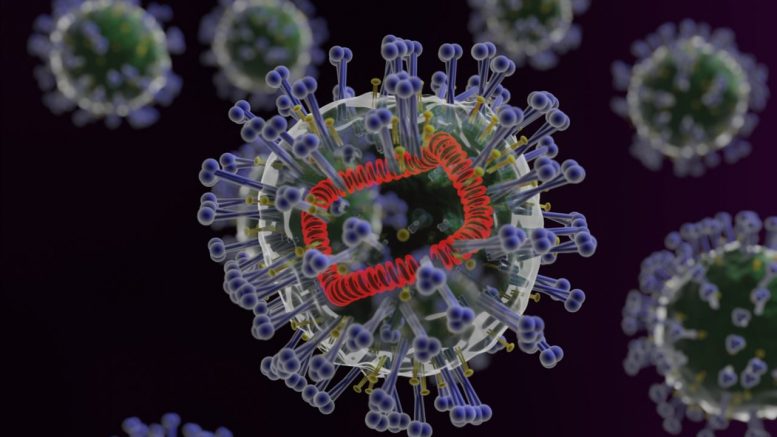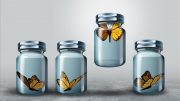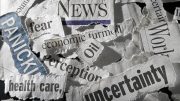Chief-Exec News Bites
No plan for immediate retaliation against Israel, senior Iranian official says
Iran has no plan for immediate retaliation against Israel, a senior Iranian official told Reuters on Friday, hours after sources said Israel launched an attack on Iranian soil. “The foreign source of the incident has not been confirmed. We have not received any external attack, and the discussion leans more towards infiltration than attack,” the Iranian official said on condition of anonymity. According to Reuters, an Iranian analyst also told state TV on Friday that mini drones shot down by air defences in Isfahan were flown by “infiltrators from inside Iran”. Meanwhile, the Israeli hard right minister Ben Gvir has posted a one-word post on X on Friday: “Feeble!” The Guardian, April 19
Israel strikes Iran
Israel struck Iran early this morning, according to two Israeli defense officials, in what appeared to be the country’s first military response to Iran’s attack last weekend. Three Iranian officials confirmed that a strike had hit a military air base near the central Iranian city of Isfahan early on Friday, but did not say which country had attacked. The explosions came less than a week after Iran fired more than 300 missiles and drones at Israel, its first direct attack on the country, in response to an Israeli strike on an Iranian diplomatic compound in Syria that killed seven Iranian officials on April 1. For days, Israeli leaders have threatened to respond to Iran’s strikes, which turned the two countries’ yearslong shadow war into a direct confrontation. The attack came after the US and European allies imposed new sanctions on Iranian military leaders and weapons makers, while imploring Israel not to risk a wider war by retaliating too strongly. New York Times, April 19
US veto sinks latest Palestinian bid for full UN membership
The United States on Thursday spoiled a long-shot Palestinian bid for full United Nations membership, vetoing a Security Council measure despite growing international distress over the humanitarian crisis in Gaza. The move by Israel’s key ally had been expected ahead of the vote, taking place more than six months into Israel’s military offensive in the besieged Palestinian territory, in retaliation for the deadly October 7 attack by Hamas militants on southern Israel. Twelve countries voted in favour of the draft resolution recommending full Palestinian membership. Britain and Switzerland abstained. Palestinian leader Mahmud Abbas’s office called the US veto “a blatant aggression … which pushes the region ever further to the edge of the abyss”. France 24, April 19
EU watchdog warns bloc still needs Russian LNG
The EU’s energy regulator has warned the bloc still needs to import Russian liquefied natural gas to avoid an energy shock, even as a group of member states seeks to ban purchases of the fuel from Moscow. Acer, the bloc’s energy watchdog, on Friday said efforts to curb Europe’s record imports of Russian LNG “should be approached with caution” because the supply of pipeline gas from the country is set to fall at the end of the year. “The reduction of Russian LNG imports should be considered in gradual steps,” Acer said in a report that highlighted the difficulty for the EU of balancing energy security with the drive to hit Russia’s finances by cutting gas purchases. The watchdog, which closely monitors Europe’s energy market for adverse developments, plays a lead role in co-ordinating national regulatory bodies. Although the EU has succeeded in replacing Russian pipeline gas with LNG since the Kremlin’s 2022 full-scale invasion of Ukraine, the global gas market is still tight. Financial Times, April 19
Why a deluge of Chinese-made drugs is hard to curb
The US government has long accused China of flooding the country with deadly drugs like fentanyl, a synthetic opioid up to 50 times stronger than heroin, claims the Chinese government denies. The US says Chinese-made opioids are fuelling the worst drug crisis in the country’s history. In 2022 more than 70,000 Americans died from fentanyl overdoses. According to a report published by the US select committee on the Chinese Communist Party, the Chinese government provides subsidies to companies openly trafficking illicit synthetic drugs. The report found tens of thousands of posts online advertising illegal drugs and pre-cursors. The study claims that “wholly state owned” companies are involved in the trafficking of drugs. The Chinese government has consistently denied knowledge of the illegal drug trade. BBC news, April 19
Thames Water submits new plan to raise bills by 56%
Thames Water is understood to have resubmitted a business plan to the regulator based on a much sharper rise in bills than previously thought and with households having to foot an increase in charges of 56 per cent over the next five years. The government is finalising a renationalisation plan, codenamed Project Timber, in the event that Britain’s largest water company, heavily in debt, is unable to recapitalise, leaving the taxpayer on the hook for billions of pounds. Thames was plunged into crisis last month after its nine shareholders refused to pump any more financial support into the company. The Times, April 19
Drug shortages, now normal in UK, made worse by Brexit, report warns
Drug shortages are a “new normal” in the UK and are being exacerbated by Brexit, a report by the Nuffield Trust health thinktank has warned. A dramatic recent spike in the number of drugs that are unavailable has created serious problems for doctors, pharmacists, the NHS and patients, it found. The number of warnings drug companies have issued about impending supply problems for certain products has more than doubled from 648 in 2020 to 1,634 last year. Mark Dayan, the report’s lead author and the Nuffield Trust’s Brexit programme lead, said: “The rise in shortages of vital medicines from rare to commonplace has been a shocking development that few would have expected a decade ago.” The UK has been struggling since last year with major shortages of drugs to treat ADHD, type 2 diabetes and epilepsy. Three ADHD drugs that were in short supply were meant to be back in normal circulation by the end of 2023 but remain hard to obtain. Some medicine shortages are so serious that they are imperilling the health and even lives of patients with serious illnesses, pharmacy bosses warned. The Guardian, April 18
Kitney’s Column
October 5, 2023
Battling for Australia’s hearts and minds
June 19, 2023
Brexit: when rhetoric finally faced facts
May 6, 2023
Has Queen Elizabeth’s death made an Australian republic inevitable?
March 13, 2023
Australia stopped the boats but the UK may flounder
Richie’s Column
October 16, 2023
A sea change in the UK is on the political horizon
April 4, 2023
Only a mug makes predictions in Scottish politics
January 16, 2023
Rishi Sunak’s Tory nightmare
October 21, 2022
It’s all Brexit’s fault!
May 30, 2022
Why is no-one talking about the high cost of Brexit?
Encipia: The Mechanics of Business
June 17, 2020
Covid conundrum: interact, produce, consume, or infect
There are early signs to suggest that a coronavirus and a steam engine have enough in common to provide a useful perspective for our economic well-being, writes Dr John Egan in part…


































